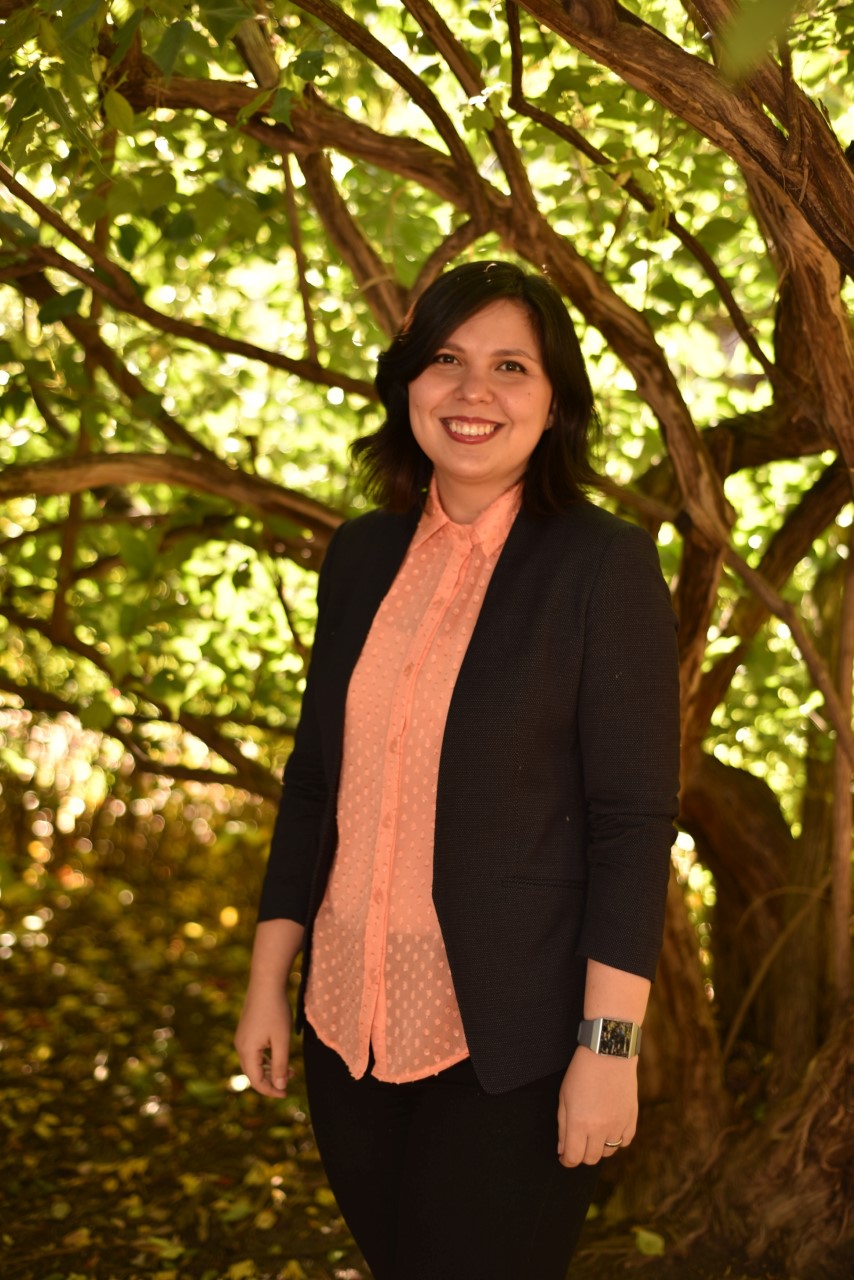This is a continuation of our "IANR is Global" series, which highlights the many ways internationalization is woven through the Institute of Agriculture and Natural Resources: through research collaboration, government and private industry partnerships, extension work, student educational experiences and the IANR community from around the world.
The old adage that luck is what happens when preparation meets opportunity rings true with one of Nebraska's most recent doctoral recipients, Raquel Rocha.
Hailing from the city of Fortaleza in the state of Ceará, Brazil, Rocha was not one to leave things to chance. After finishing her bachelor's degree in biological science from the Federal University of Ceará, she decided to fully take advantage of the time before her next foray into academia, coming to Nebraska to take three months of English classes as part of Nebraska's English as a Second Language programming. She knew she would need to be proficient in English to thrive in the university setting, and wanted to eventually do her doctoral degree abroad somewhere. She contacted a few professors at UNL and audited a couple of classes. She then met Richard Wilson, associate professor of plant pathology (her current advisor) during this time, and he introduced her to his lab and research. She also started participating in the journal club organized by his lab. She found his research on the rice blast fungus Magnaporthe oryzae fascinating and also of major importance to Brazil, given the country's challenges with severe losses caused by this fungus on its other important host, wheat. She left UNL, but that wasn't the end of her Nebraska story. Through continued contact with Wilson, she looked for opportunities to fund her studies and was ultimately awarded a Science without Borders scholarship (Programa Ciência sem Fronteiras, CAPES) from the Brazilian government to pursue her doctorate and study rice blast at UNL.
“Raquel wants to make a difference in her home country, where wheat blast, a disease closely related to the one we study, is decimating crops," said Wilson. “She reached out to me about joining my program and pursuing a PhD for this purpose before she had even started her Master’s in Brazil. This careful and typical forward planning allowed adequate time for Raquel to secure her own funding for the first four years of her PhD."
Wilson's lab focuses on understanding the metabolic strategies employed by the rice blast fungus Magnaporthe oryzae during host colonization. The research Rocha developed during her Ph.D. program identified two new components of central importance to the development of rice blast infection and how they impact fungal pathogenicity. The findings from this research can now be leveraged towards novel mitigation strategies targeting fungal pathogens.
"I am very proud of the research I was able to develop here," said Rocha. "One of the molecular factors identified during my doctoral program was shown to mediate the adhesion of specific fungal infection structures prior to plant penetration. This has not been shown in any other pathosystem and represents a fundamental discovery in molecular plant pathology."
Interest generated from this work lead her to participate at the International 29th Fungal Genetics Conference as an invited speaker and for the research group to be commissioned to write a review on the topic for Fungal Biology Reviews, which contributed for Rocha to be awarded the Widaman Distinguished Graduate Assistant Award at UNL.
"Working under Dr. Wilson’s guidance has given me an incalculable set of skills to develop research in genetics and biochemistry," said Rocha. "But besides the technological tools I learned, Dr. Wilson’s mentorship and passion for science has taught me about the kind of scientist I want to be. I will be forever grateful for that.”
In addition to the preparation she received at Nebraska to excel in her own career, Rocha has simultaneously helped to mentor and develop skills in her younger labmates.
"Since joining my lab, she has excelled as a motivated, detailed and thoughtful experimentalist with a particular passion for microscopy," said Wilson. "Raquel is a great mentor and has passed these new skills to younger members of the lab. Consequently, we are now routinely performing investigations that were not possible for us just a few years ago."
As for the future, Rocha says she will be continuing her postdoctoral studies in Dr. Wilson’s group, continuing to characterize important pathways in Magnaporthe that are required for rice infection and bring her graduate student work to publication in high-impact journals. She plans to begin new, trans-institutional collaborations that will bring cutting-edge technologies to bear on the problem of rice blast disease. Additionally, she hopes to continue to engage with UCARE undergraduates and graduate students in the lab in order to pass on some of the skills she learned during her own studies, especially in the area of microscopy, her passion.
"Through her drive and dedication to making great science, I am convinced Raquel will continue to grow into a world-class scientist and inspiring teacher focused on solving one of the world’s greatest agricultural problems. Her story demonstrates why we should continue to train scholars from around the world," said Wilson.
Do you have an international element to your work, studies, or background that you'd like to see highlighted in our "IANR is Global" Series? Contact Brianne Wolf at bwolf4@unl.edu.
